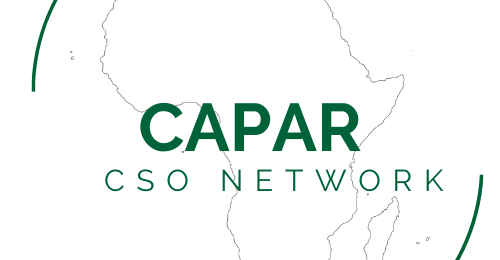Illicit financial flows (IFFs) are a significant obstacle to Africa’s development, as they drain essential resources. To confront this challenge, the African Union took concrete steps, starting with the adoption of the Special Declaration on Illicit Financial Flows in January 2015. This declaration endorsed the recommendations of the African Union/United Nations Economic Commission for Africa’s High-Level Panel Report on Illicit Financial Flows from Africa and committed to identifying and reclaiming lost financial resources. Subsequent sessions of the Assembly focused on the development of strategies to combat corruption and recover illicitly acquired African assets.
Establishment of CAPAR
In July 2017, the Assembly adopted the theme “Winning the Fight Against Corruption: A Sustainable Path to Africa’s Transformation,” signalling a landmark commitment to addressing corruption on the continent. A key objective was the establishment of a Common African Position on Asset Recovery (CAPAR). The following year, international partners were called upon to support a transparent timetable for the return of illicitly acquired assets, as outlined in the Nouakchott Declaration of July 2018.
The culmination of these efforts came in February 2020, during the 33rd Ordinary Session of the Assembly, with the adoption of the Common African Position on Asset Recovery (CAPAR). CAPAR serves as a continental policy and advocacy tool to strengthen the fight against illicit financial flows. It promotes a unified approach among member states to recover stolen assets, bolster legal frameworks, facilitate cooperation between countries, and ensure transparency and accountability in asset recovery processes.
Key Pillars of CAPAR
The Common African Position on Asset Recovery (CAPAR) lays out essential measures to address the ongoing loss of African assets, aiming to identify, recover, and manage assets in a manner that respects member states’ sovereignty and development priorities.
These measures are structured into four pillars:
- Detection and Identification of Assets: This pillar focuses on enhancing mechanisms to detect and identify illicitly acquired assets within and outside African jurisdictions.
- Recovery and Return of Assets: The emphasis here is on developing strategies and frameworks for the successful recovery and repatriation of African assets from foreign jurisdictions.
- Management of Recovered Assets: Once assets are recovered, this pillar outlines measures to effectively manage and utilize them for the benefit of African development.
- Cooperation and Partnerships: Collaboration among member states and international partners is crucial for effective asset recovery. This pillar emphasizes fostering partnerships and cooperation to enhance asset recovery efforts.
Alongside these pillars, CAPAR addresses cross-cutting issues:
- Strengthening Domestic, Regional, and International Systems: Recognizing the role of corruption and weak systems in asset loss, this issue underscores the importance of creating robust legal, taxation, financial, and justice systems to mitigate such losses.
- Inclusion: Acknowledging disparities in member states’ capacity for asset recovery, this issue advocates for mutual support and inclusion. It stresses the involvement of all stakeholders, including civil society, media, and academic institutions, in accordance with domestic laws.
- Enabling Implementation: To facilitate effective implementation of CAPAR, this issue highlights the need for resource allocation, intra-continental cooperation, and mechanisms for monitoring and evaluating asset recovery efforts at domestic and regional levels.
The Role of Civil Society
Civil society organizations can play a crucial role in holding governments accountable and advocating for transparency. CAPAR offers several areas where civil society can significantly impact asset recovery, including monitoring implementation, raising awareness, advocating for transparency, and holding governments accountable. The framework encourages civil society engagement in asset recovery processes, recognizes the importance of raising public awareness about IFFs and asset recovery efforts, and acknowledges the need to equip civil society with the necessary knowledge and skills.
Blog written by Lewis Kundai, CiFAR.
The CAPAR Civil Society Network was established in 2022 to conduct joint CSO advocacy for the CAPAR and coordinated monitoring of national level implementation of the CAPAR.
CiFAR provides secretariat support to the network. Read about the CAPAR Civil Society Network here.

